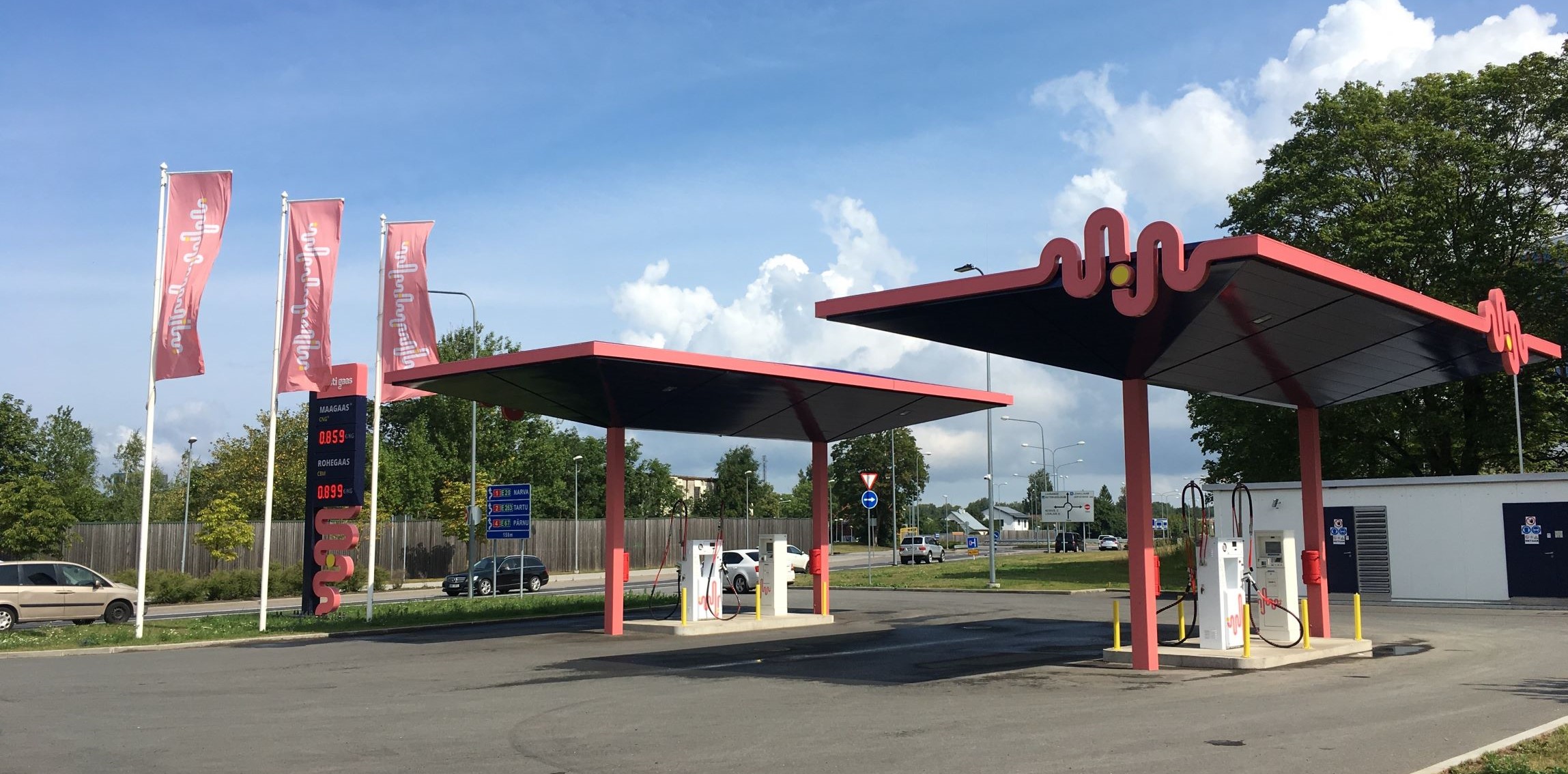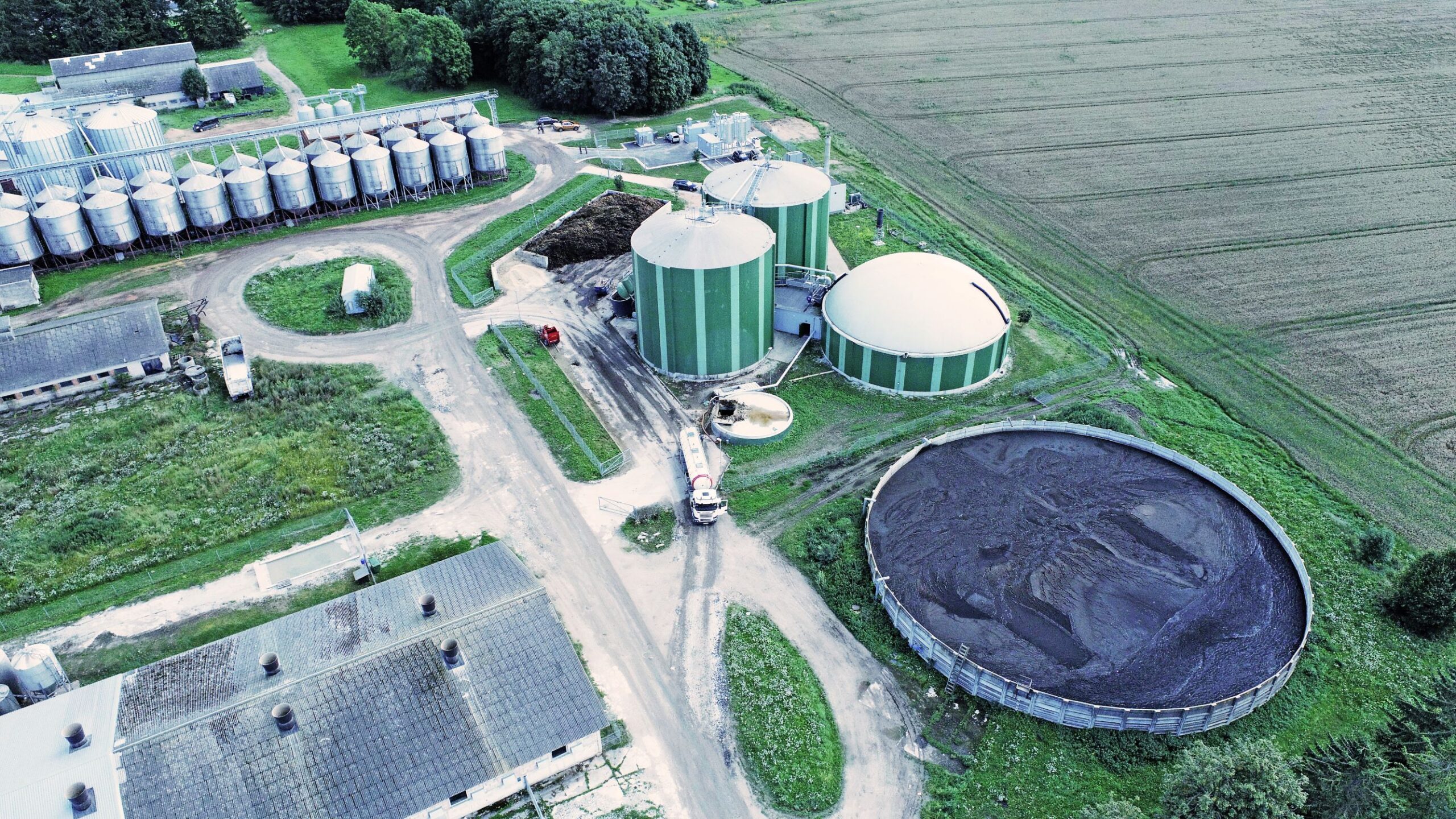Biomethane is the fuel of the green future
Local and sustainable version of natural gas
Biomethane is a novel renewable version of natural gas produced by refining biogas from manure, slurry, food waste, sewage and sewage sludge. It is a 100% local fuel that is currently primarily used in transport in the CNG (compressed natural gas) vehicles.
Once the countries reach an agreement on how to accept each other’s renewable energy certificates, biomethane is expected to gain ground and start complementing natural gas also in broader spectrum.
Elenger was the first in the Baltic States to start selling biomethane in its CNG station network in 2018.
Today, through a sibling company, we are also involved in biomethane production in three plants in Estonia.
A novel engine fuel with negative footprint
Compressed biomethane (CBM) – the renewable alternative for compressed natural gas (CNG) – is by far the most environmentally friendly transport fuel and the only one with negative footprint: one bus running on biomethane makes another diesel bus in addition to itself carbon neutral. More and more cities and countries are moving towards clean transport with biomethane and CNG due to their numerous advantages over the traditional liquid fuels:
- More economical. While it does depend on the tax policy of each country, it generally costs less – sometimes half as much – to drive on biomethane than on petrol.
- Ten times cleaner. The CO₂ emissions of biomethane that is produced from agricultural waste are almost 10x lower than from fossil liquid fuels. Since methane is not released into the air, the use of biomethane is actually hundreds of times better.
- No toxic emissions. When biomethane is completely burned, only carbon dioxide and water vapor remain. Unlike from burning petrol and diesel fuel, no toxic carbon monoxide and nitrogen oxides, hydrocarbons, soot and other fine particles posing risk to human health are released.
- Sustainable. CNG has been and still is necessary pioneer for biomethane. While natural gas supplies are exhausted, biomethane can be produced forever.
- No exhaustion to the living environment. Due to the pipeline transport of biomethane, the burden on roads and railways, and the amount of exhaust gases and noise is reduced.
- Versatile vehicle selection. Many large automotive companies include CNG vehicles in their model range. There are CNG cars, trucks and buses available.
- The network of fuelling stations is expanding. By 2025, the EU goal is to cover the main road network with a CNG filling station every 150 km as a minimum.
- Refuelling is simple, clean and safe.
Transport gas pioneer in the Baltic states
While compressed biomethane and natural gas are being used primarily for city and inter city transport, the liquefied natural gas (LNG) is showing great potential for international road haulage and marine transport.
EU Member States have established minimum requirements for their CNG and LNG refuelling infrastructure. The goal is, by 2025, to cover the EU main road network with CNG filling stations at least every 150 km and LNG gas stations at least every 400 km.
Elenger is playing an active part in the transport gas development in the Baltic region.
We currently operate the biggest CNG station network in Estonia under Eesti Gaas brand name. Customers can refuel both, compressed natural gas (CNG) and compressed biomethane (CBM).
Elenger Marine’s LNG bunker vessel Optimus offers LNG bunkering services to environmentally friendly ships in the Gulf of Finland area of the Baltic Sea.

